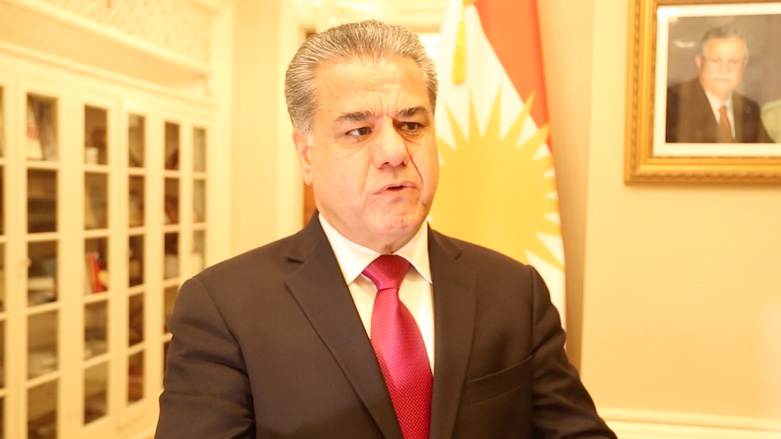US views KRG as partner, but must be meaningfully engaged

WASHINGTON DC, United States (Kurdistan 24) – Falah Mustafa, Head of the Kurdistan Region’s Department of Foreign Relations (DFR), visited the US last week, just before the Thanksgiving holiday.
Mustafa’s trip was of special significance, as it was the first visit of a senior Kurdish official to Washington since Baghdad’s Oct. 16 assault on Kirkuk. Just before leaving, he spoke with Kurdistan 24, summarizing his trip.
He stressed that Washington still sees the Kurdistan Regional Government (KRG) as a valuable partner.
Gen. H.R. McMaster, National Security Adviser to President Donald Trump, was the most important US official with whom Mustafa met.
McMaster “was sympathetic,” the Kurdish envoy explained. “He stressed that the United States views the KRG as a partner.”
“They are supportive of the KRG as a united entity, as a sole KRG with Iraq; and a KRG that would enjoy its constitutional rights,” Mustafa affirmed.
The head of the DFR summarized the points he made to his interlocutors, who include Congressmen, as well as Pentagon and State Department officials
“It was a good opportunity for us to discuss the latest developments, express our concerns about the situation, and make our point that we need the United States to be heavily engaged,” Mustafa said.
“Erbil and Baghdad need to sit down together and discuss the future of the [Kurdistan] Region and Iraq,” a point that he repeatedly stressed.
The objectives of such a dialogue, with the US as a serious participant, would include ensuring that the ceasefire continues and that it becomes permanent.
US mediation is also needed to help Erbil and Baghdad “find a combined security mechanism in the disputed territories” and to help arrange “joint administration in these areas, until Article 140 of the constitution is implemented,” Mustafa explained.
The US position—as the State Department has affirmed—is that the disputed territories should be jointly administered.
However, virtually no progress has been made toward that objective, and the Popular Mobilization Forces (PMF) in some areas, including Tuz Kharmatu, have committed serious human rights abuses.
When Kurdistan 24 asked about his reported request for the US to designate a Special Envoy for Iraq, Mustafa explained that in some of his meetings, “We asked for, and we proposed, a Special Envoy in order to deal with Iraq as a whole.”
Matters that the US needs to help address are not just relations between Erbil and Baghdad, but involve Iraq’s Sunni Arabs, too, “if we want stability.”
It is widely recognized that to prevent another Islamic State (IS) from re-emerging, Sunni Arabs must feel their interests and concerns are represented within the political system.
“The war on IS as a military confrontation has ended,” Mustafa said, “but that doesn’t mean that [IS] is over.”
“We need to have a political plan for the day after—the engagement of Kurdistan, and the engagement of Sunni Arabs and others,” he stated.
But, that objective also remains distant—and not just for the Kurds. Some 100,000 Christians fled their homes in northern Iraq. Most are now refugees in the Kurdistan Region.
Iraq’s Chaldean Archbishop Bashar Warda on Monday told Yahoo News Baghdad has said it has no money for reconstruction in the Christian areas, so he hopes for US assistance.
Iraq’s Sunni Arabs seem to fare little better. Entifadh Qanbar, an Iraqi-American and President of the Future Foundation in Washington, complained to Kurdistan 24, describing Prime Minister Haider al Abadi as a sectarian figure.
He recounted Abadi’s visit to Washington earlier this year. Abadi was supposed to hold a reception for all Iraqis, as has become customary when the Prime Minister visits. However, Abadi invited only those people associated with his own Shia party, al-Dawa.
Such problems only underscore Mustafa’s core message: the US must be meaningfully and seriously engaged in Iraqi affairs to ensure that “peace, stability, and security” actually follow IS’ defeat.
Editing by Karzan Sulaivany
